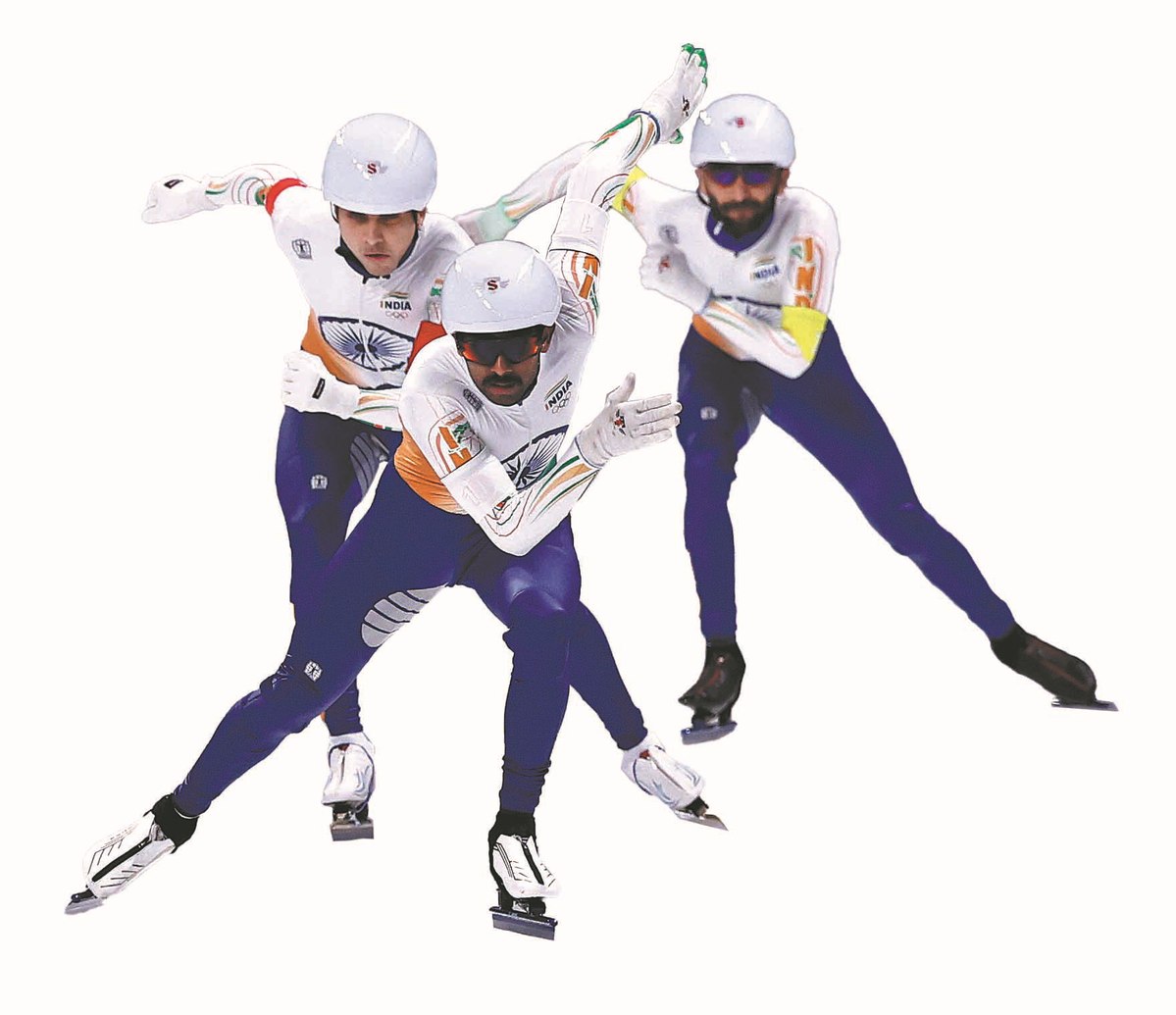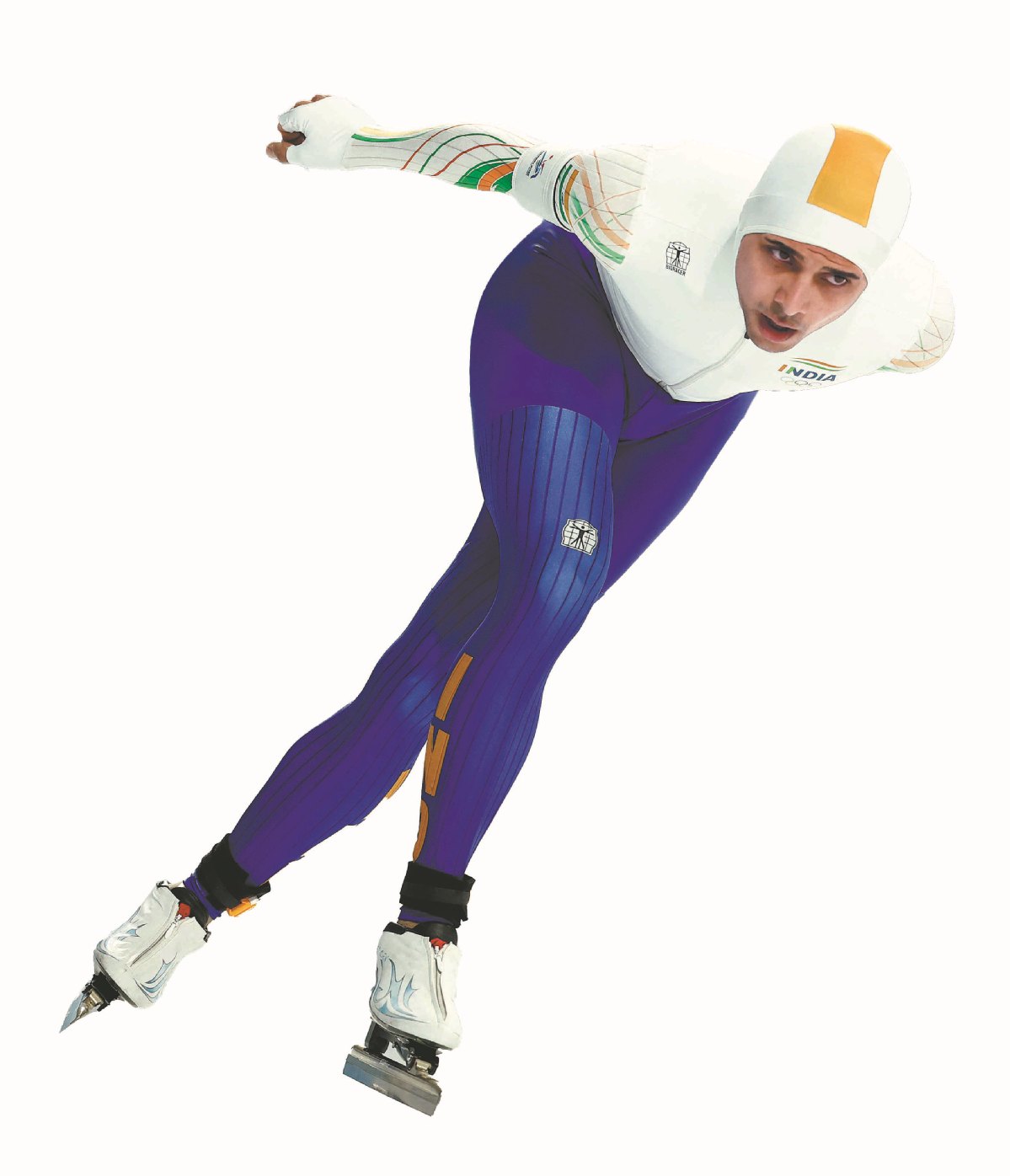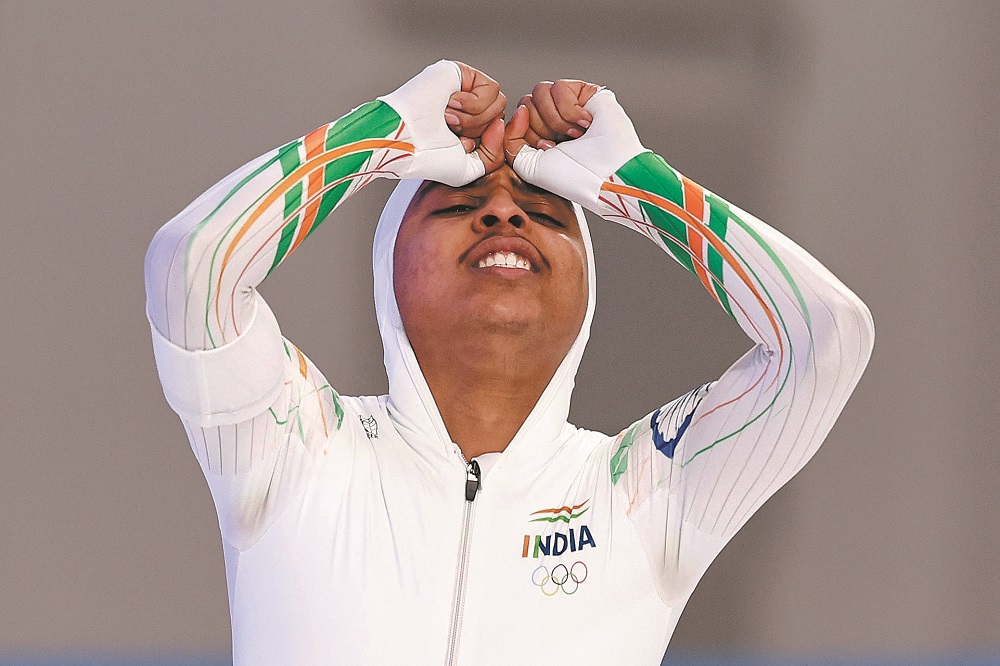
India's speed skating program looks to future success in major international competitions after gaining valuable experience during the Asian Winter Games. REUTERS
From tarmac to ice, and from India to the Netherlands, former inline skater Amitesh Mishra never minds going the distance, as he harbors a dream to see India stand atop the Winter Olympics podium.
So far, so tough, as the 25-yearold, who just switched from wheels to blades three months ago, has learned the magnitude of his bold ambition the hard way at the 9th Asian Winter Games.
As much as he pushed in his two individual and two team events, Mishra, among nine longtrack skaters India sent to Harbin, did not finish even close to the podium in any of the disciplines at the Heilongjiang Ice Training Center, as the speed skating program completed its four days of action on Tuesday.
In fact, no Indian, man or woman, reached the top 15 in any of the 10 individual events they signed up for in Harbin.
The gap between India and continental powers China, Japan and Republic of Korea couldn't be more stark, let alone the higher-caliber European heavyweights, yet Mishra and his fellow teammates have opted to keep pushing anyway.
"It's really a good start," Mishra told Winter Asiad after competing in the men's team sprint alongside Chandra Mouli Danda and veteran Vishwaraj Jadeja on Monday." It's a big event, a very big stepping stone, because people who are here from other countries are already at quite a high level.
"But for me, to witness the skaters who are my idols, to skate with them, is a bit too overwhelming. The gap is too large now, but I take the positives — that I get to skate with them, and next time, I can compete with them," said Mishra.

India's speed skating program looks to future success in major international competitions after gaining valuable experience during the Asian Winter Games. REUTERS
His teammate Srivatsa Srikantha Rao, who finished 19th among 23 skaters in Tuesday's 1,000m final, echoed his sentiments.
"It was a very good experience. I felt I gained a lot from this, even though we weren't much in it. But, I gained a lot from this, and I hope me and my countrymen do better next time," said the 17-year-old.
As one of the country's emerging roller skaters, Mishra laced up for India on the continental stage for the first time at the 2018 Summer Asian Games in Indonesia, where he placed 8th in the men's 20km, and has represented his country at multiple regional and international events in the roller sport.
The inspiration from his team leader Jadeja, the oldest skater in Harbin at 39 years old, and India's first-generation roller-turned-ice-skater, has inspired Mishra and his peers to replace their wheels for blades, too.
Only by switching lanes, taking on a new sport that has little Indian representation on the world stage, at least for now, would they have the opportunity to become Olympians.
"For us, participation in winter sports is really important because there is not much awareness about winter sports in India, since it's a hot country. However, I feel everyone is interested in trying winter sports now. It's growing," Mishra said.
Similar with other countries in Asia's hot and tropical areas, Indian athletes start in makeshift conditions and have had to overcome a lack of facilities, guidance and international exposure.

Srivatsa Srikantha Rao. REUTERS
The government, though, is getting the message.
For the first time in history, the country's government extended its financial support, under the Scheme for Assistance to National Sports Federations, to athletes competing at the Asian Winter Games.
An annual multi-sports domestic tournament, the Khelo India Winter Games have been held since 2020, with this year's edition having finished all the ice sports prior to the Winter Asiad, and the rest of the snow events to be staged next week after the Harbin Games.
Still, Mishra feels more could be done, citing the host China's proven success in accelerating its winter sports programs from humble beginnings to go toe-to-toe with the world's ice and snow sports superpowers.
"The government support could be better," he said. "For now, it's only for the elite level and not the grassroots."
"I think China is like an inspiration as a country, because in winter sports, I've seen so much money going into the infrastructure and the systems, where they have club-level competitions and different levels of skaters, and they go get funding.
"I think when you have a structure and infrastructure that good, and also hosting a lot of events, seeing the best athletes compete, I think that's the key to success for any country. It's bound to win."
To try and improve quickly for his Winter Asiad debut, Mishra also followed in the footsteps of his predecessor Jadeja and traveled to Europe before the 2024-25 season to seek guidance at the mecca of speed skating in Heerenveen, the Netherlands. There he enjoyed an eye-opening experience, training under double Olympic champion Nils van der Poel's coach.
At a personal cost of about $30,000, the overseas training program has paved way for Mishra's maiden Winter Asiad campaign, despite only recently shifting to ice skating.
Yet, his sights are set way beyond Harbin.
"I want to win the gold medal in the 10,000m at the 2030 Winter Olympics. It's a six-year plan," he said after Monday's race, gasping for breath, yet full of icy determination.